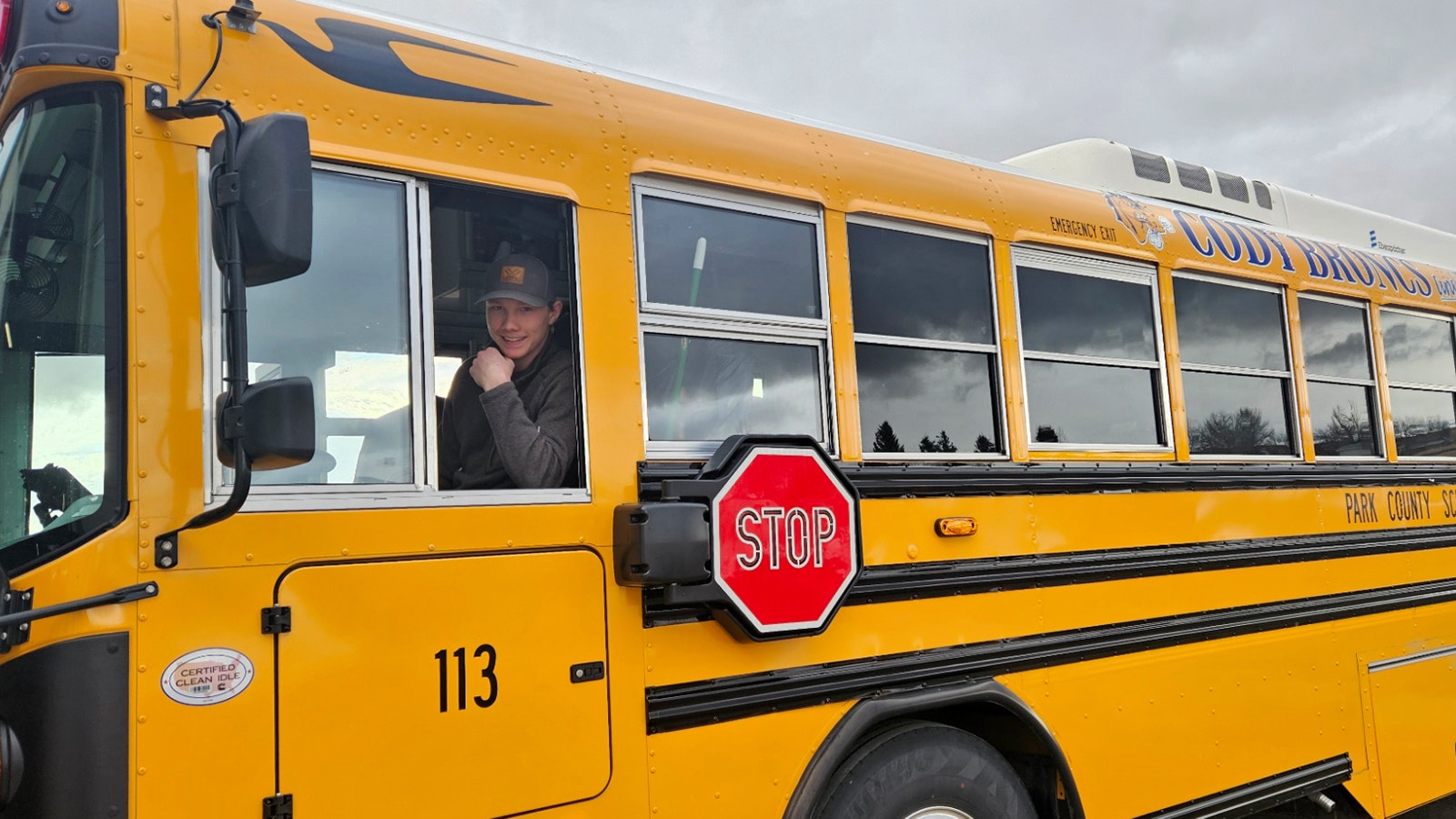By Renée Jean, Business and Tourism Reporter
renee@cowboystatedaily.com
Pointed questions were just what Local 7 union president Kim Cordova was hoping to hear during a congressional hearing into the merger deal between grocery giants Kroger and Albertsons, and she wasn’t disappointed.
Lawmakers asked many of the same questions Cordova has been asking about the proposed merger, which would create a grocery store behemoth that would control one-fifth of the nation’s food supply.
“I think it sounded like the only two in the room who are for the merger were the two CEOs,” she told Cowboy State Daily after the hearing Tuesday afternoon.
Cordova represents about 750 grocery store workers in Wyoming. She said Local 7 and other unions will continue to push lawmakers to stop the merger, which she believes will broaden food deserts in the West and put hundreds of jobs at risk.
Not To State The Obvious, But …
Sen. Mike Lee, R-Utah, led off the round of questioning with this one.
“Kroger has made public commitments to spend billions of dollars to lower prices to improve its stores and to raise wages,” Lee said.
Yet, at the end of 2021, Kroger announced a billion-dollar stock buyback.
“Things have gotten considerably worse since then,” Lee said. “Just the beginning of last year, the average U.S. household paid an additional $110 for food in the month of October 2022. The average Utah household paid an additional $125 in October of 2022, so it’s even worse in Utah.
“If Kroger wasn’t passing on savings to consumers when it was competing with Albertsons — competition is very often what brings down prices. It’s one of few things that can be counter-inflationary.”
Because competition often leads to lower prices, “why would we think it would pass on savings after it eliminates that competition?”
CEO Says Prices Are Lower
Kroger CEO Rodney McMullen said Kroger has lowered pricing by more than 3% since 2003, which is $5 billion a year.
“If you look at our merger with Harris Teeter, we’ve lowered our gross profit rate to more than $100 million per year there,” he said. “And if you look at our merger with Roundy’s in Wisconsin, we’ve lowered pricing there by about $130 million per year.”
But simply lowering prices is not what creates the best market scenario for Kroger, he added.
“What we have found is by giving customers a better value, using personalized pricing for each household based on what’s really important to that household and passing those savings, that creates more loyalty,” he said. “And then we also really focus on fresh foods. And that’s really from a competitive standpoint, we always try to make sure we have the freshest product in the market.”
Next Question
Those personalized customer deals, however, aren’t binding on the company going forward, Lee pointed out before asking his next question of Albertsons CEO Vivek Sankaran.
“Albertsons has just proposed handing out $4 billion to its shareholders, which dwarfs the $2.8 billion in commitments tied to the merger,” Lee said. “Why do Kroger and Albertsons need to merge in order to lower their prices and treat their employees better, when it seems like they already have the money to do so now?”
Sankaran said Albertsons had bought a number of distressed stores from SuperValu in 2013, spending $11.5 billion since that time to turn the stores around, as well as an additional $1.5 billion for communities where Albertsons operates.
“In every year since the merger of Safeway, increasing wages and, at the same time, becoming more competitive. We have not returned cash to shareholders over that timeframe,” he said. “This $4 billion is a return of cash to those shareholders who have supported us over this decade. It has nothing to do with the merger itself.”
Sankaran also denied that paying the dividend will weaken the company.
“Albertsons companies is in excellent financial condition,” he said. “And that was the case before the dividend payment and will remain the case after the dividend payment.”
Haggen Deal A Failure
Lee also brought up the bankruptcy of Haggen Foods & Pharmacy, after Albertsons sold off most of its available 168 locations to the smaller grocery chain as part of the Safeway-Albertsons merger in 2014.
“I don’t think it’s controversial to say that when divested assets required to be divested in connection with the merger had to (declare) bankruptcy less than a year, just nine months, and then end up simply being re-acquired by the merged firm, that remedy is an embarrassing failure,” Lee said. “You have any response to that?”
Sankaran said the divestment and buyer were at the time both qualified and approved by the FTC.
“We did everything we could to help the Haggen stores at that time and, when it didn’t work, we bought it,” he said. “But if you step back and look at the bigger picture, the merger by any measure is a success, where we put two companies together, one of them struggling, and have turned them around, and we’re sitting at this table with the financial performance we have because of that merger.”
Timeline
Sen. Amy Klobuchar, D-Minnesota, meanwhile, asked about the timetable for implementing price cuts.
“If the merger is approved, who will analyze whether or not you meet that commitment?” she asked.
McMullen said the process would begin Day One.
“Obviously, we won’t be able to, we’re not able to do any of the analysis before we merge because of the information that’s involved,” he said. “But it will start immediately Day One. And we would expect that the $500 million to be (cut) over a four-year time horizon as well.”
Not Convinced
Klobuchar expressed skepticism that consumers would ever see price reductions.
“Your operating profit increased from $2.8 billion in 2020 to $3.5 billion in 2021,” she said. “That’s a 25% jump. And so that is why you’re sensing some cynicism about this idea about bringing prices down when we have even less competition.”
McMullen said he appreciated the directness of Klobuchar’s question.
“One of the things in retail, you have to re-invent yourself every 10 to 12 years, because you have new competitors come in,” he said. “And at one point that was Walmart. At another point that was Costco. At one point that’s Amazon. It’s just part of the industry.”
That reinvention involves creating better value for consumer’s money, he said.
Klobuchar said she was asking about the future, not the past.
“(Do) you think that having less competition is going to create pressure on you to reduce prices?” she asked.
“Yeah, I just don’t see less competition going forward,” McMullen replied. “It’s easy for a customer to take a right turn or a left turn. And we will continue to invest in pricing because it’s incredibly important to our customer. We will also invest in service and fresh product.”
Kroger Already Huge
Klobuchar also pointed to Kroger’s own factbook issued in 2021, which lists 49 major markets where the supermarket already has nine or more stores in one city.
“It says that you have the No. 1 or No. 2 market share in 41 of the 49 markets already today,” Klobuchar said. “And that’s without even accounting for the Albertsons stores.
“What is your market share today and do you think, just as you’ve done here with your own factbook, do you think that you should be considering market share on a market-by-market basis instead of a nationwide basis?”
McMullen said Kroger takes both perspectives into account.
“We always have,” he said, “because from a local basis, looking at market share, the infrastructure (such as) a warehouse, some of the other parts are incredibly important to create efficiency.
“So, we would always look at market share from both perspectives.”
More Food Deserts, Higher Prices
Sen. Alex Padilla, D-California, meanwhile, said he finds many communities up and down his state where constituents will clearly have fewer retail grocery store options if the merger goes through.
“In your testimony, you both suggest that your stores compete with premium stores like Whole Foods and Sprouts, or warehouse stores like Costco, or expensive online grocery delivery services,” he said. “But from my experience, consumers know better. Replacing the neighborhood grocery store with premium alternatives means a consumer would face a dramatic increase in the price of their basic staples, and likely the number of stops they would now need to make to buy what they need.
“Do you really believe that your customers could easily substitute all the shopping that they do at your stores with shopping at Whole Foods or Costco or Amazon?”
McMullen said surveys of Kroger’s customers indicate they’re shopping on average at five to six locations.
“Obviously, we are actively working with the FTC, and we will expect to continue to do that, and would expect that every market will be just as competitive going forward as it is today,” he said.
Sankaran, meanwhile, added that the goal is not to close stores, but to divest them and keep a viable competitor going forward.
Increased Pay, Benefits
Sen. Padilla expressed skepticism about the answer, but moved on.
“The proposed merger announcement noted that the combined company expects to invest $1 billion to continue raising associate wages and comprehensive benefits after close,” he said. “I’d welcome more detail about the $1 billion investment; what it will look like in practice?”
McMullen said the increase to pay and benefits would phase in over a four-year time period and will be a combination of improvements in both areas.
“If you look at the benefits we offer, it would be world class across the U.S. in terms of retirement benefits,” he said. “Other health care benefits, and things like that. And we would expect to continue to do that, which many of our non-union competitors would not offer to the same degree.”
Spinoffs
Sen. Lee had a pointed redirect for the viability of spinning stores off into a much smaller chain.
“If Kroger and Albertsons, which each have over 2,000 stores currently, if they can’t compete with Walmart, then how would the spun-off companies survive with only a few hundred stores dispersed throughout the country?” Lee asked.
McMullen said it’s about “connecting with the local community” and a “combination of price, service and freshness.”
“There’s several competitors that would actually be smaller than what Spinco would be,” he added.
Market share for small regional grocers has grown 25% to 33%, McMullen added, based on information from the National Grocers Association.





